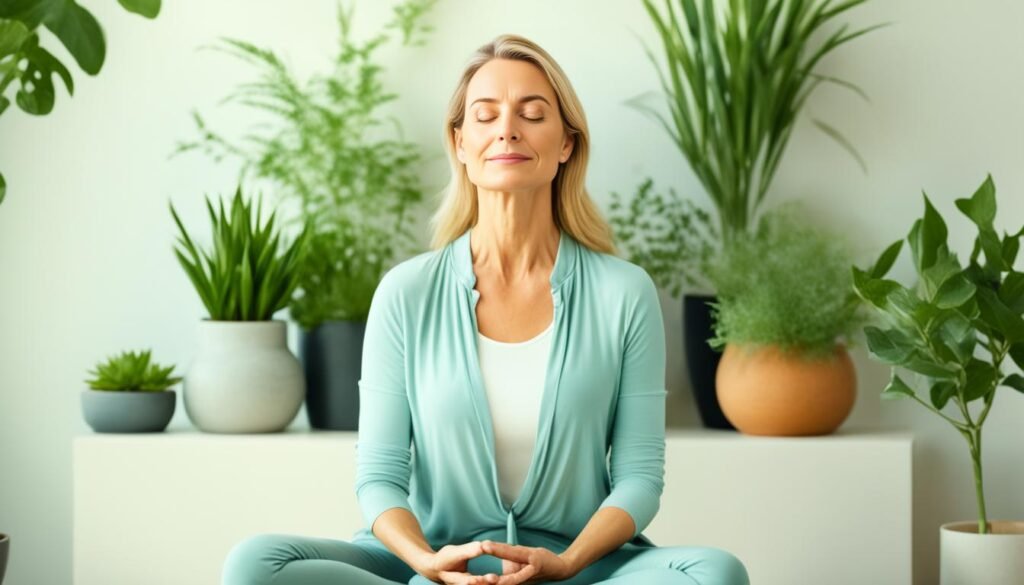In the hustle and bustle of modern life, it’s easy to neglect our own needs in pursuit of professional and personal obligations. However, incorporating daily self-care practices into our routines can have a profound impact on both our mental health and overall well-being. According to the “First source”, self-care is the action and practice of prioritizing your personal wellbeing, which can have the knock-on effect of reducing stress and enhancing happiness and satisfaction.
Self-care is about paying attention to your feelings and making choices—and sometimes sacrifices—for the sake of your mental and physical health. The “Second source” emphasizes that self-care is important because it helps re-establish balance and avoid burnout, acting as a mechanism for recalibrating and getting in touch with our ability to play, have fun, relax, and connect. The “Third source” further highlights that self-care isn’t just a luxury, but a necessity, as it helps you perform better at work and be more present and pleasant at home.
Understanding the Essence of Self-Care
What is Self-Care?
The “First source” defines self-care as “a multidimensional, multifaceted process of purposeful engagement in strategies that promote healthy functioning and enhance well-being.” In simpler terms, self-care is all about caring for yourself to ensure your physical and emotional needs are met. The “Second source” further explains that self-care isn’t just about indulgent spa days and pampering, but a deeper practice that encompasses setting boundaries, attending necessary medical appointments, and making choices for the sake of your mental and physical health.
Why is Self-Care Important?
According to the “First source”, self-care is an important practice because it consists of recognizing your needs and meeting them. Taking a proactive approach to tending to your wellbeing can enhance many areas of your life, including promoting physical health, enhancing mental resilience, improving mood, reducing anxiety, managing stress, and boosting productivity. The “Second source” emphasizes that self-care is vital for building resilience toward life’s stressors that we can’t eliminate, and when you’ve taken steps to care for your mind and body, you’ll be better equipped to live your best life.
Creating a Personalized Self-Care Plan
Crafting a tailored self-care plan is a crucial step in prioritizing your well-being. The “First source” outlines key steps to create an effective self-care routine that caters to your unique needs and goals. Start by assessing your current physical, emotional, and mental state to determine the areas where self-care could be most beneficial. Next, set clear, achievable goals for what you hope to accomplish through your self-care practices.
The “Third source” emphasizes the importance of customizing your self-care plan to your specific life circumstances. By identifying the activities you genuinely enjoy, you can prioritize the self-care activities that resonate with you most. Developing a self-care schedule that you can realistically commit to is also essential for turning your plan into a sustainable habit.
Finally, the “First source” recommends tracking your progress and adjusting your self-care plan as needed. Regularly reflecting on what’s working (and what’s not) will help you refine your approach and ensure your self-care practices remain effective over time. Remember, a personalized self-care plan can serve as a powerful preventative measure against feeling overwhelmed, overstressed, and burned out.
Quick and Easy Self-Care Practices
Incorporating mindfulness and meditation into your daily routine can be powerful self-care tools. Practicing mindfulness exercises can help you stay present and reduce stress, while meditation practices can clear your mind and foster a sense of mental clarity and emotional balance. The “Second source” emphasizes that these practices are especially important for mental health, as they can enhance your ability to process emotions in a healthy way and build mental resilience.
Mindfulness and Meditation
In addition to mindfulness and meditation, the “First source” recommends music listening and reading habits as quick and easy self-care practices. Listening to music you love can help you relax and take a break from the daily grind, while reading can stimulate your intellectual stimulation and provide a form of escapism. The “Third source” suggests that engaging in these activities can also help with emotional regulation and stress relief, making them valuable additions to a self-care routine.
Music and Reading
By incorporating these quick and easy self-care practices into your daily life, you can take proactive steps to address stress and promote your overall well-being. Whether it’s a mindfulness exercise, a meditation session, or an immersive musical or literary experience, these simple activities can have a profound impact on your mental clarity and emotional balance.
Short Self-Care Practices for Stress Relief
Incorporating short self-care practices into your daily routine can be an effective way to manage stress and promote overall well-being. The “First source” and “Second source” both highlight the importance of exercise routines and healthy eating habits as key components of this approach.
Exercising and Healthy Eating
Regular physical exercise can have a profound impact on your mood enhancement and physical health. As the “First source” notes, exercise not only boosts your energy levels and overall fitness, but it can also help build confidence and resilience by allowing you to push past mental limitations. Complementing your exercise routine with a focus on nutritious, wholesome meals can further contribute to your sense of vitality and rejuvenation.
Relaxation Techniques
In addition to exercise and healthy eating, the “First source” recommends incorporating relaxation techniques as a short self-care practice for stress reduction and emotional well-being. Activities such as deep breathing, progressive muscle relaxation, and guided imagery can be instrumental in alleviating both physical and mental tension. As the “Third source” emphasizes, making these relaxation exercises a regular part of your routine can be a valuable strategy for managing stress and maintaining mental clarity.
Journaling
The “First source” also suggests journaling as a short self-care practice that can aid in stress management and personal growth. Writing down your thoughts and feelings can help you better understand and process your emotions, which can be an important step in navigating challenging times. As the “Second source” highlights, this form of emotional self-care can provide a healthy outlet for dealing with uncomfortable feelings.
Longer Self-Care Practices for Emotional Well-being
While daily self-care activities are essential, engaging in longer self-care practices can provide an even deeper sense of emotional fulfillment and personal growth. The “First source” and “Third source” both recommend exploring hobbies and creative activities as a way to support your emotional well-being. Dedicating time to pursuits that spark your joy and fuel your creativity can offer a much-needed respite from stress, help you process your feelings, and leave you feeling energized and inspired.
Pursuing Hobbies and Creativity
Whether it’s painting, writing, gardening, or learning a new instrument, immersing yourself in hobby engagement and creative activities can have a profound impact on your mental health and emotional state. These longer self-care practices allow you to tap into your inner passions, unleash your imagination, and experience a profound sense of emotional fulfillment. As the “Third source” emphasizes, engaging in these types of activities can be especially beneficial for boosting mood and fostering personal growth.
Seeking Support and Social Connections
In addition to hobbies and creativity, the “First source” and “Second source” highlight the importance of seeking support and cultivating social connections as longer self-care practices for emotional well-being. Maintaining close relationships with friends, family, and trusted peers can provide the emotional support and sense of community engagement that is crucial for overall mental health and work-life balance. As the “Second source” notes, prioritizing these social relationships should be an integral part of a well-rounded self-care routine.
Prioritizing Medical Care and Quality Sleep
As part of a comprehensive self-care routine, it’s essential to prioritize preventive healthcare and ensure quality sleep. Regular check-ups and proactive medical care can help you maintain your physical well-being, enabling you to better manage any underlying health conditions that may be impacting your overall health and sleep quality.
Getting enough quality sleep each night is crucial for both your physical health and mental well-being. Adults are recommended to prioritize 7-9 hours of restful sleep per night, while children should aim to get the appropriate number of hours for their age and stage of development. Poor sleep quality, whether due to sleep disorders like sleep apnea or lifestyle factors, can have a significant impact on cognitive function, immune system, and even increase the risk of chronic diseases.
Establishing healthy sleep hygiene practices, such as maintaining a consistent bedtime routine, creating a relaxing sleep environment, and limiting screen exposure before bed, can go a long way in enhancing the quality of your sleep. Seeking medical intervention, such as chiropractic adjustments or cognitive-behavioral therapy, can also be beneficial for those struggling with sleep-related issues.

By prioritizing both preventive healthcare and quality sleep as part of your self-care routine, you’ll be well on your way to optimizing your physical health and mental well-being, setting the foundation for a balanced and thriving lifestyle.
Daily Self-Care Practices for Work-Life Balance
In today’s fast-paced, hyper-connected world, maintaining a healthy work-life balance can be a constant challenge. As more professionals find themselves working remotely or juggling increased responsibilities, the need for intentional self-care practices has become paramount. By incorporating daily habits that support both your professional and personal well-being, you can achieve greater productivity, stress reduction, and a heightened sense of work-life integration.
Setting Boundaries
One of the most important daily self-care practices for maintaining work-life boundaries is setting clear boundaries with technology and communication. This may involve turning off work notifications after business hours, creating a dedicated workspace separate from your living area, and avoiding the temptation to constantly check digital devices. Establishing these boundaries can help you better regulate your emotions, reduce stress, and disconnect from the demands of your job when it’s time to focus on personal priorities.
Time Management Strategies
In addition to setting boundaries, incorporating effective time management techniques into your daily self-care routine can significantly improve your productivity and work-life integration. This may include prioritizing tasks, creating systems to automate routine activities, and avoiding the pitfall of overcommitment. By optimizing how you use your time, you can free up mental space, increase your focus, and better balance your professional and personal responsibilities.
Practices like creating to-do lists, setting realistic goals, and delegating tasks when possible can all contribute to a more streamlined, less stressful workflow. Additionally, taking regular mindful breaks throughout the workday can help you maintain energy levels and cognitive clarity, ultimately enhancing your overall effectiveness and work-life balance.
Self-Compassion and Positive Self-Talk
The “Third source” emphasizes the importance of self-compassion practices and positive self-talk as essential self-care practices. Developing the habit of treating yourself with kindness and replacing negative self-criticism with encouraging, factual statements can help regulate your emotions, build mental resilience, and foster personal growth. The “First source” also notes that practicing self-compassion and maintaining an affirming inner dialogue are key components of maintaining overall emotional well-being.
Self-compassion comprises three core constructs: Self-kindness, Common Humanity, and Mindfulness, as introduced by Dr. Kristin Neff in positive psychology literature. Self-kindness involves showing understanding and warmth towards oneself when faced with failures or pain, rather than harsh self-criticism. Common Humanity emphasizes viewing one’s experiences as part of the broader human experience, accepting flaws as natural aspects of the human condition. Mindfulness in self-compassion entails acknowledging and labeling thoughts without over-identifying with them or avoiding difficult emotions, striking a balanced emotional response.
Techniques for practicing self-compassion include treating oneself as one would treat a dear friend, caring for oneself with empathy, becoming more self-aware, and using releasing statements to change negative self-talk. Specific exercises and online resources are available to help individuals effectively cultivate self-compassion as a self-care practice.
Research has shown that self-compassion and positive self-talk can have profound benefits for mental health and well-being. Studies indicate that mindfulness interventions can reduce depression and anxiety, while self-compassion has been linked to lower anxiety levels, improved coping, and greater personal growth motivation. Integrating these practices into one’s self-care routine can foster emotional regulation and build mental resilience to navigate life’s challenges.
Incorporating Nature and Spirituality
Integrating nature connection and spiritual practices into your self-care routine can be profoundly beneficial for your emotional well-being, mental clarity, and stress relief. As the “Third source” suggests, spending time in natural settings, such as going for a hike or sitting in the park, can help you feel more at ease and rejuvenated. The sights, sounds, and smells of nature have a grounding effect, allowing you to disconnect from the demands of daily life and reconnect with your higher self.
Similarly, engaging in spiritual practices, whether it’s meditation, prayer, or exploring your personal beliefs, can provide a sense of meaning and foster emotional well-being. As the “First source” notes, these types of self-care activities can help clear your mind, reduce stress, and promote overall mental clarity. By incorporating both nature connection and spiritual practices into your self-care routine, you can achieve a greater sense of balance and inner peace.

From cleansing your space with Palo Santo or sage to exploring the use of essential oils like Frankincense, Cedarwood, Jasmine, and Rose for spiritual self-care, there are countless ways to infuse your daily life with nature and spirituality. Building a spiritual community or finding a spiritual mentor or advisor can also provide valuable guidance and support on your journey of self-discovery and emotional well-being. Additionally, incorporating spiritual tools like crystals, tarot cards, and sound bowls can enhance your self-care practices and help you connect with your highest self.
For further inspiration, consider exploring books like “Chakras and Self-Care,” “The Spirit Almanac,” “A Spiritual Journal for Women,” “Tarot for Change,” and “After the Rain,” which offer valuable insights and practical guidance for integrating nature and spirituality into your self-care routine. By embracing these holistic approaches, you can unlock a deeper sense of mental clarity, emotional well-being, and stress relief in your life.
Luxurious Self-Care Retreats and Pampering
While self-care encompasses much more than pampering, there is certainly room for indulgence as part of a well-rounded self-care routine. Treating yourself to a relaxing bath, a day at the spa, or a weekend self-care retreat can provide a much-needed opportunity to truly rejuvenate both your mind and body. These pampering activities can help you feel refreshed, recharged, and better equipped to tackle life’s challenges.
From the scenic Tenerife, Canary Islands in Spain with prices starting at $1,671, to the serene Pāhoa, Hawaii with rates from $1,698, there are a variety of luxurious self-care retreats to choose from. For a European getaway, the Merano, Trentino-South Tyrol retreat in Italy offers rates from $2,436, while the Surat Thani, Thailand retreat can be booked from $811. These destinations provide the perfect setting for relaxation and mental rejuvenation.
Whether it’s indulging in a day of spa treatments or escaping on a weekend getaway, these self-care practices can be a valuable addition to your overall well-being routine. By incorporating both practical and pampering self-care activities, you can find the right balance to truly nourish your mind, body, and spirit.


